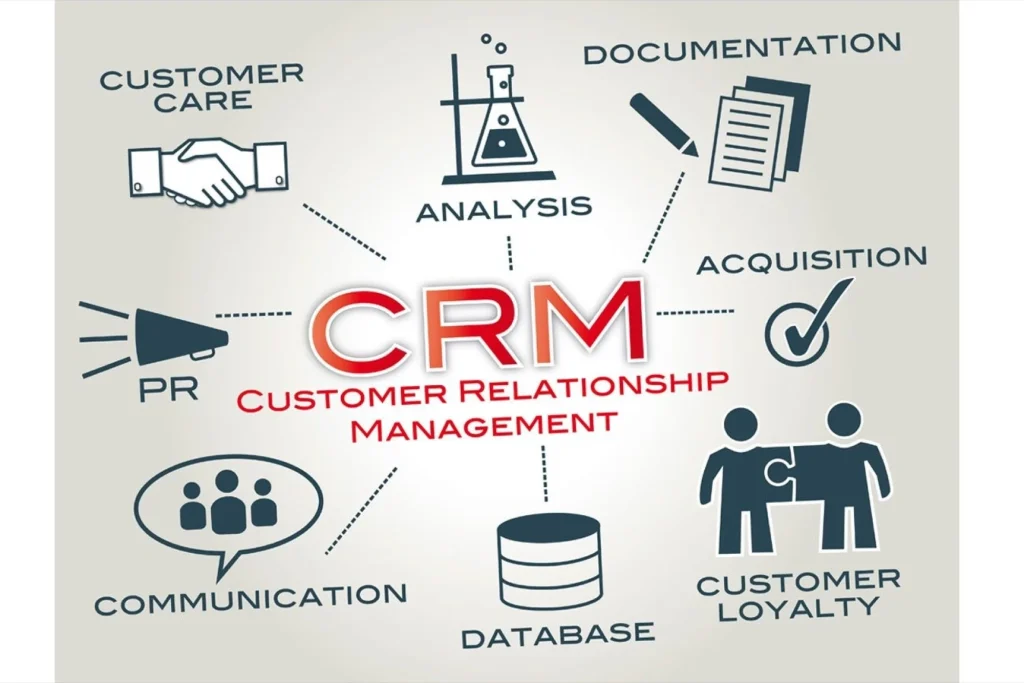Customer Relationship Management: Building and maintaining strong relationships with customers is essential for any business aiming to thrive in today’s competitive market.
Customer Relationship Management (CRM) serves as a strategic approach to foster fruitful interactions, maximize customer satisfaction, and drive long-term loyalty.
In this comprehensive guide, we delve into the importance of CRM, its key benefits, and effective strategies to implement it successfully.
Understanding Customer Relationship Management
Customer Relationship Management (CRM) refers to the practices, strategies, and technologies businesses employ to manage and analyze customer interactions throughout their lifecycle.
By nurturing relationships with customers, businesses can better understand their needs, anticipate preferences, and tailor their products and services accordingly.
CRM encompasses various activities, including data collection, customer segmentation, and personalized communication, aiming to foster customer loyalty and enhance overall business growth.
Key Benefits of Customer Relationship Management
Implementing a robust CRM system can yield numerous advantages for businesses.
Firstly, it helps in centralizing customer data, making it easily accessible and allowing for a comprehensive view of individual customers.
Secondly, CRM enables businesses to personalize interactions and offers, fostering stronger customer engagement.
Additionally, CRM systems facilitate efficient task management, ensuring timely follow-ups and seamless coordination among team members.
Furthermore, CRM analytics provide valuable insights into customer behavior and preferences, empowering businesses to make data-driven decisions for improved marketing, sales, and customer service.
Implementing Customer Relationship Management Strategies for Business Success
Analyzing Customer Data for Personalization
One key aspect of CRM is analyzing customer data to gain a deep understanding of their preferences, purchase history, and engagement patterns. By leveraging this data, businesses can tailor their communication, product recommendations, and offers, leading to higher customer satisfaction and loyalty.
Streamlining Communication Channels
CRM emphasizes the importance of seamless communication with customers across multiple channels, including email, phone, and social media. By integrating communication channels and tracking interactions, businesses can provide consistent and timely responses, enhancing customer experience and strengthening relationships.
Leveraging Automation for Efficient CRM
Automation plays a pivotal role in CRM, enabling businesses to automate routine tasks such as data entry, follow-ups, and scheduling appointments.
By automating these processes, organizations can free up valuable time for their sales and support teams, allowing them to focus on building meaningful connections with customers.
Monitoring and Measuring CRM Performance
To ensure the effectiveness of CRM strategies, it is crucial to monitor and measure performance regularly. Key performance indicators (KPIs) such as customer satisfaction rates, customer retention rates, and revenue growth can help gauge the success of CRM efforts and identify areas for improvement.
Top CRM Software Solutions for Various Industries
CRM Software A: Streamlining Sales Processes:
CRM software A is specifically designed to streamline sales processes, allowing sales teams to efficiently manage leads, track deals, and forecast sales performance. It offers features such as pipeline management, sales analytics, and integrations with other sales tools.
CRM Software B: Enhancing Customer Support
CRM software B focuses on enhancing customer support and service. It provides features like ticket management, knowledge base systems, and customer self-service portals, enabling businesses to deliver prompt and personalized support, resulting in improved customer satisfaction.
CRM Software C: Optimizing Marketing Campaigns
CRM software C is tailored for marketing teams, offering functionalities to optimize marketing campaigns and improve lead generation. It includes features such as email marketing automation, lead scoring, and campaign tracking, enabling businesses to nurture leads effectively and maximize marketing ROI.
Overcoming Challenges in CRM Implementation
Change Management and Employee Adoption
Implementing CRM requires careful change management to ensure successful adoption by employees. Training sessions, clear communication, and demonstrating the benefits of CRM can help address resistance and encourage the team to embrace the new system.
Data Security and Privacy Concerns
With the increasing volume of customer data stored in CRM systems, businesses must prioritize data security and privacy. Implementing robust security measures, obtaining necessary consent, and complying with relevant data protection regulations are crucial to maintaining customer trust.
Integration with Existing Systems
Integrating CRM with existing systems, such as ERP or marketing automation platforms, can be a challenge. However, seamless integration allows for efficient data flow and a unified view of customers, maximizing the effectiveness of CRM strategies.
Future Trends in CRM: Artificial Intelligence and Beyond
Artificial Intelligence (AI) is revolutionizing CRM, offering capabilities such as chatbots for personalized customer support, predictive analytics for forecasting customer behavior, and sentiment analysis for understanding customer sentiment. Embracing AI-driven CRM solutions can enable businesses to stay ahead in the ever-evolving customer landscape.
Conclusion
In today’s customer-centric business environment, Customer Relationship Management (CRM) is a powerful tool for fostering meaningful connections, enhancing customer satisfaction, and driving business growth.
By implementing effective CRM strategies, leveraging advanced CRM software solutions, and staying abreast of emerging trends, businesses can forge long-lasting relationships with their customers and achieve sustainable success in the market.

